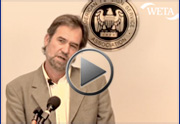In the past two posts, using the examples of Iraq and Afghanistan, I have tried to show that in today’s highly conflicted world, diplomacy matters more than ever. That said, the world’s second oldest profession is underperforming and faces a crisis of relevance and effectiveness. Diplomatic institutions and practices have not adapted well to the challenges of globalization, and diplomacy’s image is too often negative.
For these reasons and more, diplomacy has been largely ignored, and not infrequently ridiculed by journalists, think tanks, and international relations scholars. Perhaps most surprisingly, even governments – if expenditure priorities are any indication – have chosen to invest elsewhere. That neglect, I believe, has proven costly, as foreign policy has become increasingly militarized and as states have continued to rely on armed force as the instrument of choice. The results have been calamitous, not only in themselves, but because the more profound threats and challenges facing the world, most rooted in science, driven by technology and having little to do with political violence or religious extremism, have not received the attention they deserve.
Diplomacy’s problems can be remedied, but the necessary transformation will require a fundamental rethinking of some key elements of international relations, “security” and “development” foremost amongst them. Most of all, the entire “diplomatic ecosystem”, consisting of the foreign ministry, foreign service and the diplomatic business model, will have to be reconstructed from the ground up. But don’t hold your breath. Fixing diplomacy, and getting from fighting to talking, from diktat to dialogue and from coercion and compulsion to compromise and negotiation is going to be one tough slog.
Read more…

